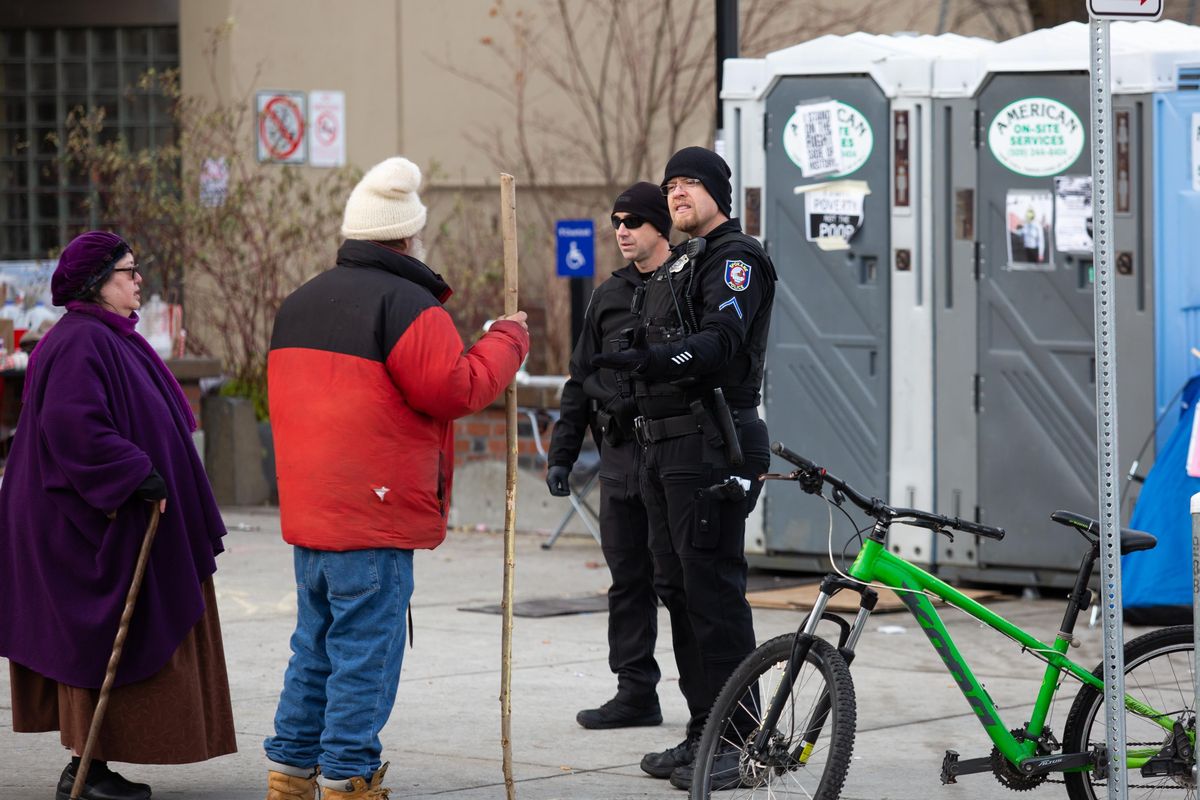Police clear homeless encampment in front of City Hall

After weeks of protests culminating in a tent encampment in front of City Hall’s doors, the city broke up the camp and disposed of left-behind belongings Sunday morning.
City Spokeswoman Marlene Feist said that, with 100 new beds available at warming centers, the city can enforce an anti-camping ordinance barring camping on public property. The ordinance had not been enforced while shelter space was limited.
Police first notified campers that they had 48 hours to move their belongings Thursday afternoon. Several demonstrators, including Councilwoman Kate Burke, chained themselves around the remaining tents Saturday to protest the removal. Burke could not immediately be reached for comment Sunday.
Several residents had already left the camp after the notices were posted, and Police spokesman John O’Brien said most of the remaining residents packed up and left the without incident.
The encampment, dubbed “Camp Hope” by the activists and supporters, sprang up after Alfredo LLamedo, a frequent voice of dissent at City Council meetings, went on a week-long hunger strike. LLamedo demanded the city repeal or suspend a controversial law prohibiting people from sleeping or sitting on downtown sidewalks in the daytime except when shelters are full. The city suspended the law on Nov. 20.
LLamedo and another local activist not staying at the camp, Charlie Milo Johansen, were arrested Sunday morning. Johansen said they were assisting people in removing their belongings.
O’Brien said the two were not complying with officers’ commands and were arrested for obstructing a law enforcement officer.
Both were subsquently released.
John Lemus, a member of the Human Rights Commission, said he was angry about how the city and Mayor David Condon’s administration were treating the homeless.
“We call ourselves a compassionate city,” he said. “But you just watched a city garbage truck and half a dozen police officers stand by while tents were loaded into a garbage truck. That’s not a compassionate city to me.”
Steven Bessermin, one of the people who has been staying at the camp over the past few weeks, said he has been homeless on and off since he was 13. Now 27, he said he is a few days away from having the documentation he needs to get into housing, which he was connected to through the SNAP coordinated assessment tool. Despite the fact that he will have housing soon, he said he joined the camping protest to advocate for other homeless people.
Bessermin was one of several homeless people staying in the camp who were told to by police to move along after they packed up their belongings and stood watching from across the street as crews gathered up the rest of the camp.
He said watching employees from the Geiger Correctional Facility clean up the camp made him “unbelievably angry,” saying police should not be throwing away homeless people’s gear or the tents that had been donated.
O’Brien said officers contacted every person in the camp and offered to connect them with resources.
“The downtown resource officers are doing everything they can to assist these people getting to warming shelters,” he said.
According to a news release, the Salem Lutheran Church warming center had 46 spaces and the House of Charity also had spaces available Saturday night.